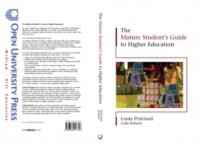This book draws on studies that quantify the link between individual development and organizational value creation. Strengthening this link is key to building a strong sense of affiliation and a more productive workforce. The author provides frameworks for characterizing the workforce, listening to the organization, using inclusion as a key differentiator, and applying mathematical modeling techniques to explore and quantify related areas.We are entering an era when it makes sense to move away from mere retention strategies of control and toward more mutually beneficial strategies of affiliation. This trend can be traced to the recognition of the knowledge worker's influence and the value of human capital in today's economy. To succeed in this emerging work world, organizational leaders and human resource professionals must create new relationships with individuals built around the concept of affiliation. This will mean changed roles and behaviors that respect mutual interests, and will require a culture of inclusion expressed internally through workforce diversity, externally through workforce partnerships, at a community level through philanthropy, and globally through the pursuit of a greater good.
















